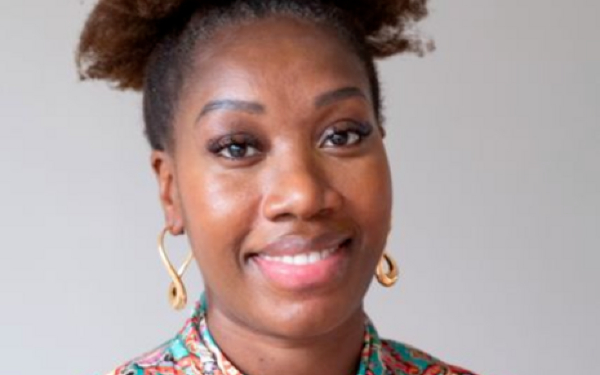
Reviews of serious cases are “silent” about the role of racial bias in child protection decision making, safeguarding experts have found.
Case inquiries relating to black, Asian or mixed heritage children inconsistently featured the voice of the child and their recommendations failed to provide high-quality learning for practitioners on working with these groups of children.
Inquiry into race and child protection
Those were among early findings from a Child Safeguarding Practice Review Panel inquiry into the impact of race, racism, and ethnicity on practice where a child has died or been seriously harmed.
The panel has examined 54 reviews submitted from 2022-24, 25 of which involved mixed heritage children, 15 relating to black children and 14 involving Asian children. The children ranged in age from under one to 17, with 32 being male and 22 female.
Thirteen children were recorded as having a disability, however, this information was missing in 16 cases; similarly, while 11 were recorded as having a neurodivergent condition, such as autism or ADHD, this information was not reported in 23 reviews.
This lack of data hampered reviews’ ability to undertake an intersectional analysis of children’s lives, panel member Jahnine Davis told this year’s National Children and Adult Services Conference (NCASC).
‘Silence’ about racial bias
More broadly, reviews did not consistently identify the extent to which race, racism, racial bias or culture impacted on practice responses to black, Asian and mixed heritage children, said Davis, a researcher specialising in the safeguarding of black children.
There was a silence about the presence of racial bias in professionals’ decision making and on the role of racism, whether internalised, interpersonal, institutional or structural, in services’ responses to families.
This was despite other forms of bias – such as in relation to sex/gender – being highlighted in reviews.
Davis, who is also the Department for Education’s national kinship care ambassador, said that reviews inconsistently featured the voice of the child.
Voice of the child lacking
“There were significant missed opportunities to include the child’s own words within review reports,” she added. “It’s been a struggle in the 54 reviews to identify an explicit quote from that child to bring to light what their experiences are.”
Meanwhile, review recommendations “infrequently featured high quality and vital learning for practice with black, Asian and mixed heritage children”, said Davis.
Recommendations tended to be generalised, rather than specific to these groups of children, and some were insufficiently detailed to promote effective practice changes.
Practice deficits
To the extent that reviews did address issues around race, they found that practitioners’ understanding of black, Asian and mixed heritage children’s lived experiences was incomplete, meaning they had a poor understanding of their vulnerabilities and risks, Davis added.
Her panel colleague, Jenny Coles, told NCASC delegates: “Reviews are highlighting an urgent need to understand the extent to which racism reverberates across the safeguarding system. Race, racism and bias are not being understood and this seriously impacting on the safety of those children.”
The panel’s report is due to be published early in 2025.






 Bournemouth, Christchurch and Poole
Bournemouth, Christchurch and Poole  Hampshire County Council
Hampshire County Council  Oxfordshire County Council
Oxfordshire County Council  South Gloucestershire Council
South Gloucestershire Council  Wokingham Borough Council
Wokingham Borough Council  Webinar: building a practice framework with the influence of practitioner voice
Webinar: building a practice framework with the influence of practitioner voice  ‘They don’t have to retell their story’: building long-lasting relationships with children and young people
‘They don’t have to retell their story’: building long-lasting relationships with children and young people  Podcast: returning to social work after becoming a first-time parent
Podcast: returning to social work after becoming a first-time parent  How managers are inspiring social workers to progress in their careers
How managers are inspiring social workers to progress in their careers  Workforce Insights – showcasing a selection of the sector’s top recruiters
Workforce Insights – showcasing a selection of the sector’s top recruiters 

 Facebook
Facebook X
X LinkedIn
LinkedIn Instagram
Instagram
This subject is emotive,uncomfortable,may uncover one’s true professional and personal beliefs.It appears the mind set is say nothing do nothing if the system does not support the child then they must fit into what is available.
In my opinion the system does not support,recognise or include the needs of the black,Asian or minority children/families despite the requirements of the welfare checklist,requirements of Social Work England and case planning where by the child’s (special characteristics)should be identified and included in the planning.
In my opinion based on my experiences if the need does not fit the morjority there is little or no patience to address the issues (more so with certainsections) and or secure a math which in turn promotes the child’s indiviaul identity and lived experiences without which can cause emotional disengagement,lack of self worth which not only impacts the child’s emotional wellbeing, progression of the plans but society in the long-term.
Therefore social work as wider implications.If a social worker can be removed from a case based on the colour of one’s skin and not on professional pratice,what then does this indicate to you about the experiences of children who may not represent the morjority, whether that be the child with a disability,educational needs or may be at a certain milestone in their life’s where they may be confused which path to take.
Such disregard and how we has professionals impacts a persons emotional wellbeing,impacts how they view themselfs in society for a long time,children are no different.
Social work is now target lead.It is true to say certain sections remain invisible,resources which they should have equal access to face more challenges and decision making.
Unless we are able too be open and honest nothing will be said nothing will change.There needs to be more representation of Black,Asian and minority professionals in position’s representative of the workforce and service users.A handful can not bring change.Support groups which are not open and honest make no difference.
Institutional racism needs to be acknowledged first it is in plain sight professional biases does impacts decision making which leaves some section’s of children,families and the workforce having assumptions made about them. yet little is done to challenge it better to say nothing.Is this not dangerous pratice you lack a clear picture of the child’s lived experiences.
A child from a different culture or disability will face different challenges and experiences from another child we do not live their challenges.Therefore should we not ascertain the child’s view.The child who tells you no one listens, the child who describes how they feel about something in terms we may not have heared before.Should this not be acknowledged in their own words/description? All of which may have different meanings for the child.All of which requires meaningful direct work and relationship building.
These are my experiences and observations.
I’m not surprised, the fact that Black children make up 7% of children in care when they make up 5% of the population is a sign that racism is rife. Nothing has change and its very disheartening , reports after reports and not much progress in addressing the issuues. Institutionalised racism continues to go unchecked as well as individual social workers own biases which seeps into their practice. The micro systems in society is reflected in the organisation and they dont check for this at the gate, I think they should make training around this issue mandatory.
So we just let the 2% who should be in care go home just so the percentages tally? If 2% more children from ethnic minority backgrounds were being abused by their parents, what excuse would you then give the scenario?
Well said, Jerry.
You’re assuming racism doesn’t exist in the system, missing the entire point of the report
Not to mention the Islamaphobia experienced by Asian, Black and minoritised communities, as well as those who have converted to Islam. There’s an immediate questioning of risk and radicalisation. It stems from anti-Muslim hatred and an ignorance about Islam, perpetuated by the media and security think tanks that are infiltrated by anti-Muslim and anti-immigrant UK and US organisations. So Muslim children and families experience another layer of discrimination, on top of racism, including criminilisation.
Would also like to know the ethnicity of the social workers and a comparison of missing information conpared to white children, in order to make a full judgement.
If children are taken into care it’s because of racism and Islamaphobia as it breaks up families but if children aren’t taken into care it’s because racism and Islamaphobia doesn’t take safeguarding of vulnerable children seriously. Trouble with social work is that judgements are made on the basis of “what I know from my experience” rather than peer reviewed academic research. And we wonder why we are “devalued” compared to nurses and doctors by the public.
Social workers now have limited access to relevent training and research unless you seek it out yourself.Should senior managers not ensure the workfore is up to date with relevent up to date training yes! and peer group academic research this does not happen.
Unless you take the time to inform your pratice by reading research your understanding and pratice is limted.
Therefore it is not only ones experiences which play a fundamental part in your pratice it is also backed up with research because you can back up what you are saying
with confidence. If you give evidence in court and want to refer to research it must be backed up,however social workers will avoid quoting research because of a lack of training and educated confidence.
If you value your profession should you not take some responsibility for your own learning if it is not provided by the organisation.Who is then devaluing the profession?
These are my experiences based on experience,pratice and research.
Contemporary social work, in my personal experience, relies on oxymoron and tautology for it’s arguments without often understanding the difference. Pointing this out of course marks you out as a suspected non-team player incapable of internalising the importance of group think. Adjectives are descriptors of what’s in front of our eyes but not their essence. For that we have to ask why questions which is never tolerated when we are assailed by truth as lived experience. That said pomposity comes easily too. As evidenced by this.
I’m not sure how any paper analysis of reviews could ever determine whether by omission or by direction those doing the review were consciously racist, had an unacknowledged bias or were just lazy and took the route of least damage to their services in their recommendations. No one is ever going to acknowledge that they may be a bit or a lot racist in their summations are they? How many reviewers reviewing reviews are equipped to undertake a textual analysis of reports to uncover hidden meanings or omissions that directly suggest racism? Personally I would value interviewing authors by safeguarding experts alongside reading their words.
Abigail, I agree with most of your comments.It could also be all of your comments with an element of what is not addressed is not there.When the issues of race and professional bias is mension I believe you are gaslight into believing everything is equal (it is not).
We can all have certain preconceived assumptions and biases we are confronted with it everyday.However it should not happen In the workplace especially when working with vulnerable children nor should it go unchallenged.
Racism and professional biases takes place on all levels.We know this but choose not to acknowledge what is taking place.
The issue of race and professional bias is not discussed and therefore goes unchallenged.
If the highlights are that Review Reports miss or can’t identify racism than it’s hardly surprising that there aren’t quality recommendations for training. That bias whether on race, gender, class, cultural distance, disability grounds is evident in social work is a known of course outside of reviews but I found the comments here themselves without nuance or depth. How does the comment that racism reverberates across the safeguarding system open up understanding and improved knowledge when the next line all but says social workers are miserable at
identifying let alone addressing bias so their practice adversely impacts safety of children?
Social work is complex the Safeguarding of children is paramount.It requires self awareness questioning one’s beliefs when making decisions.Having open and honest dialogue,analysts and supervision to ensure decisions are being made in the best interest of children from all sections of sociality.
In my opinion understanding bias should play a fundamental part in constructive disscussions/training because it impacts our decision making without being aware we may have a bias perception.
There are many forms of bias
We may make unconscious bias -based on attitudes,assumptions,or beliefs that influence our thinking without our conscious awareness based on societal stereotypes,cultural conditioning,decisions based on assumptions without having evidence to contradict other wise.
Implicit bias- is in our personal and professional lived experiences about various social groups which can negatively affect our social,educational and work situation.As social workers implicit biases affects how we interact with other’s and depersonalise others from different groups based on perceived quielites.Implicit bias can also bring with it Mico-aggression.
Ability bias-Refers to those who possess skills and talent similar to their own which excludes people from diverse communities.
Race & Ethnicity bias- Refers to discrimination about a person because of their race or ethnicity.This bias may imply more scrutiny about certain sections of service users and workforce skills and ability.Possible more referrals to fitness to pratice,less opportunity to progression to senior position’s within the workforce.
More scrutiny for services, limted training about cultural needs.The child who is removed from a culturally appropriate placement because of the demands to provide services to meet the child’s cultural needs.
Confirmation bias-Seeking information to confirm beliefs.
Explicit bias-Beliving some people are better than others.stereotying and prejudice views.
If training,disscussions and oversight of bias is not addressed as part of pratice,decision making and development how can any one claim bias does not affect fair and balance services for all.
Bias is a every day part of life it affects one’s everyday experiences,employment status,access to services, access to education,health care and more based on someone else making decisions which will individually impact us all.
We subconsciously make assumptions- We may make the assumptions only white male make safe pilots.Would we feel the same if the pilot were female,black Asian or a minority pilot?
Therefore we make assumptions about certain groups of service users which is never challenged and should be if we claim to be the voice of every child.
A black,Asian or minority person in a senior position.Is the assumption made that they do not nor can achieve the necessary skills or knowledge base.
Do we all not have to start somewhere,yet opportunity’s are open to some and not others.Therefore is there equal safeguards for all.
Bias influences decision making surely this area needs more focus and scrutiny !!
The same arguments made in the usual not so subtle accusatory tone is hardly enlightening anymore. We’ve heard this from leaders and the acclaimed too many times yet nothing seems to improve if we are to believe their wisdom. It’s as if perpetuating a narrative of failure is career enhancing and employment guaranteeing. Meanwhile in the world of neglect, abuse, flailing incompetence, ideological certainties from ‘experts’, poverty, crushed opportunities, bad housing, next to no meaningful educational opportunities, food banks, loan sharks, benefits dependence, substance addictions, misogyny, inadequacy manifesting in toxic masculinity, those of us paid by the State to minimise harm despair at how to do this while remaining on message about what the latest incarnation of ‘intersectionality’ we are meant to endorse.
If bias continues to goes unchecked,unchallenged how can you be sure/expect bias does not play a part in Safeguarding of children!!
Look at pratice and decision making it takes place in plain sight.More support and resources may be given to certain sections and not others, is this because of familiarity unconscious bias,lack of resources, discrimination, lack of social work time? It is no wonder certain sections of service users lived experiences remain INVISABLE!!!
These are my view’s based on lived experiences and work experiences.
Other than the inference about careerism I actually agree with all of the other points made by Tahin. As someone who is in the last four months of her career before retirement I’ve come to accept that conjecture rather than verifiable evidence is what drives social work policy. The consequences of that is the “lessons will be learnt” incantation. With no real change in practice as a consequence we seem just to be in an ever faster spinning wheel that comes back to the starting point quicker each time there is a review. Does anyone actually believe that the response to the torture and murder of Sara Sharif will be anything other than the usual opportunities missed, need for better interagency working, racism, cultural assumptions, wily parents making it difficult for agencies to get a true picture and the rest of what’s been said previously. I respect every social.eirjer working hard to protect children but our safeguarding processes are rotten firstly because management fads dictate practice and secondly there are too few social workers meaning hoping for the best is the only intervention that can do.
I am unashamed in my belief that many of the decisions made by leaders and self defined experts generally are made with careers in mind. We hear the same claims time and again do we not? Things don’t change what ever they chastise us with do they? Real work in real time with real resources seem beyond them. Why?